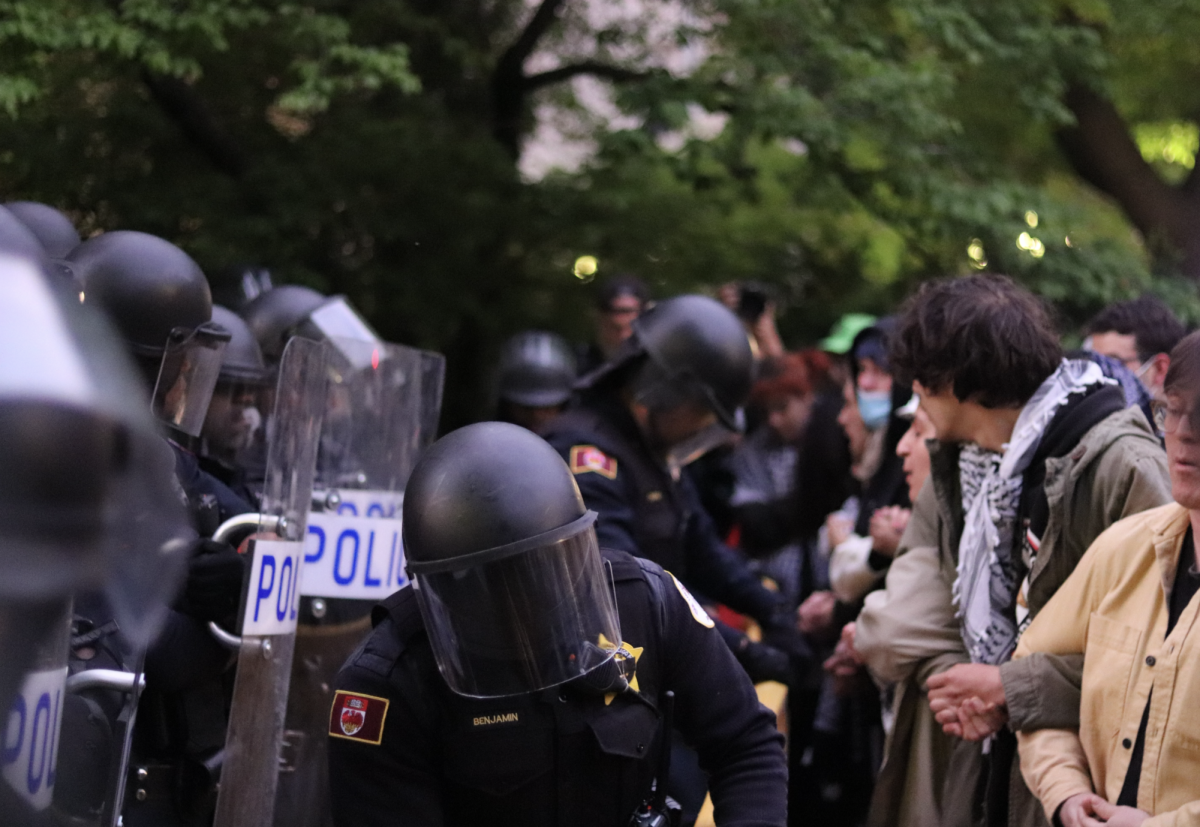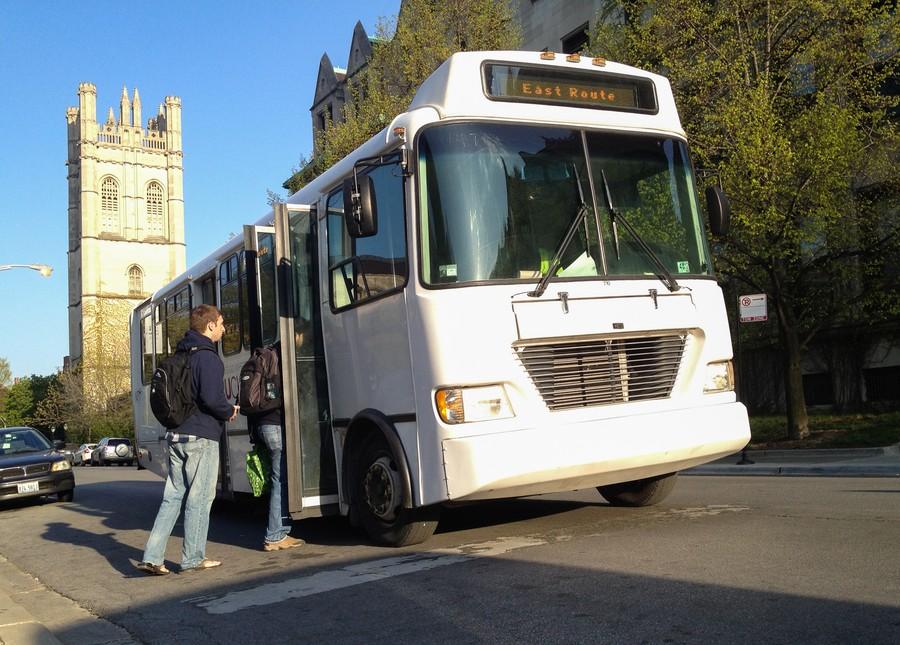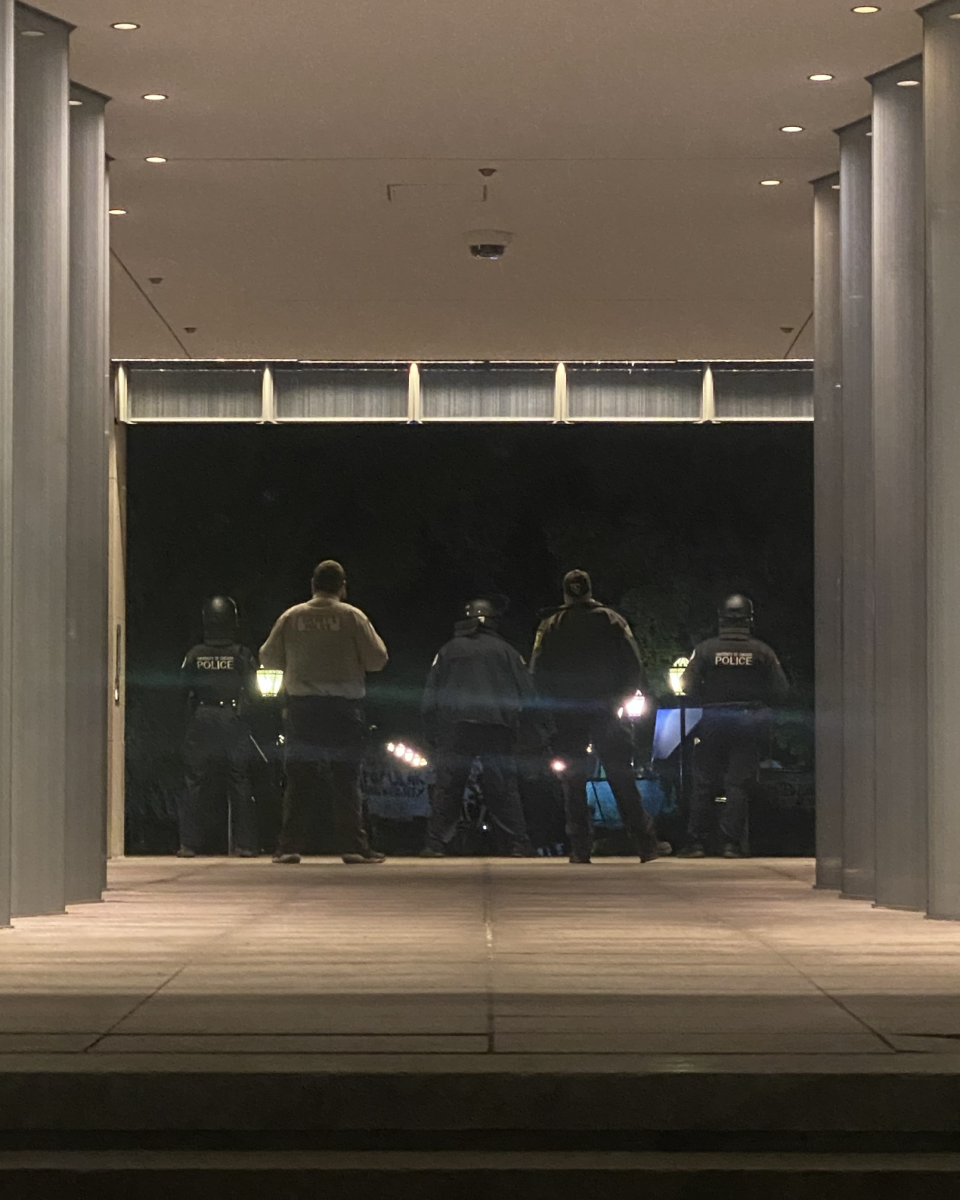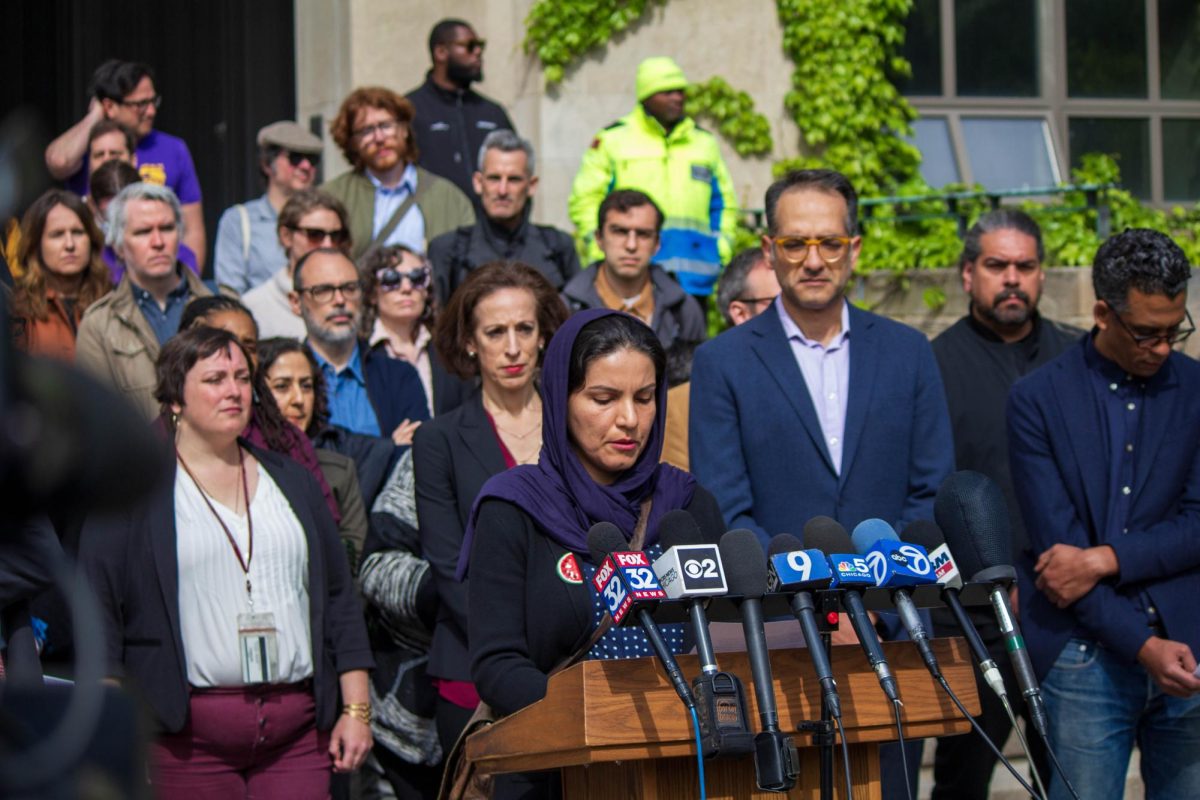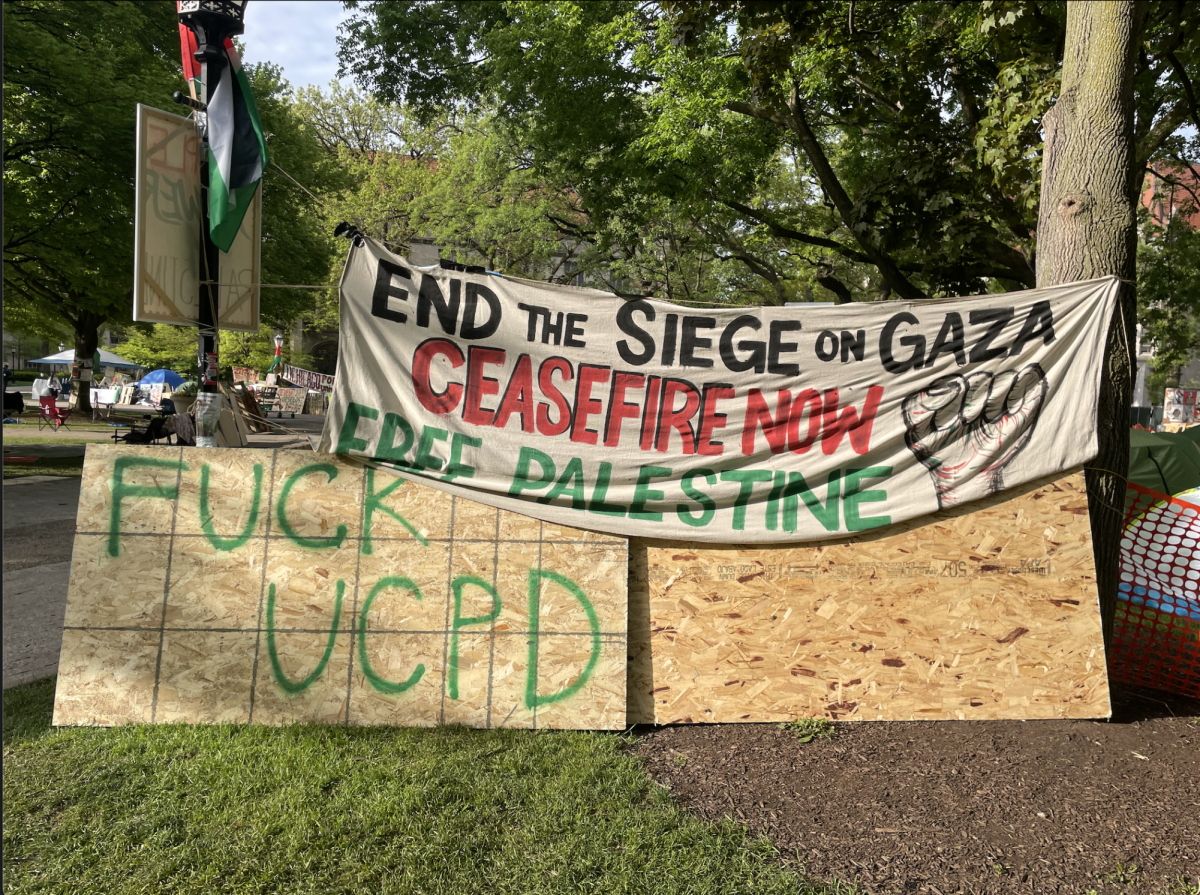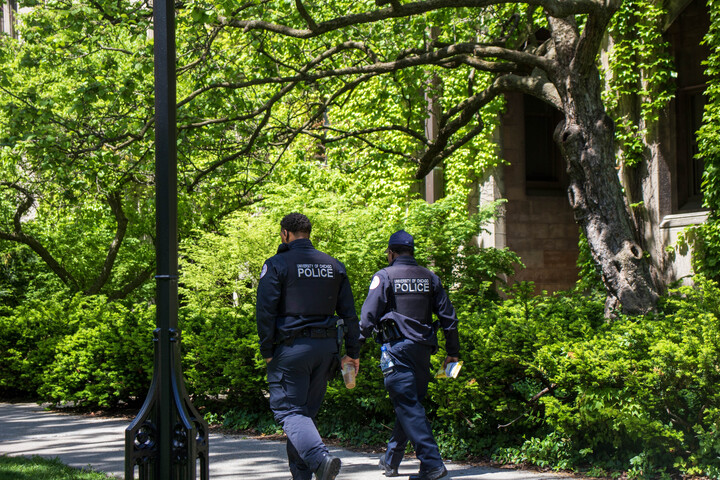This past weekend, Model United Nations of the University of Chicago (MUNUC) hosted one of the premier high school United Nations simulations in the country for the 17th year. Some 150 Chicago students sacrificed time and sleep to teach thousands of high school delegates that, unlike the Bush administration’s policies, diplomacy and debate can work.
As the Assistant Chair for the Crime Prevention and Criminal Justice Committee (CPCJ), I know the task seems daunting, but having done this two years, I was still up to the challenge and the temptations. The number one rule for MUNUC staff is “Don’t touch the delegates.”
Thursday
After chasing down the #6 CTA Jackson Express, I barely make it on time for Opening Ceremonies at the Palmer House Hilton Hotel, the location of MUNUC. Most of the staff watches the Opening Ceremonies from a balcony, looking down at the 2,000 high school students down below.
Even though this year’s speakers feature the likes of Douglass Cassel, a professor of law at Northwestern, and the University’s Bill Michel, I still find the most sincere and uplifting speech to be by our own Secretary-General, Khalid Fakhro, a fourth-year in the College who challenges delegates to follow the lead the actual United Nations has taken on the South Asian tsunami disaster. Fakhro describes the endless hours U.N. delegates spent passing resolutions, pledging aid and resources for the victims. With a bang from Fakhro’s gavel, MUNUC XVII is now in session.
After some heated debate, especially from the Russian Federation delegation, we select juvenile crime as our topic. A nagging suspicion continually crosses my mind throughout the session: Are these kids smarter and shorter than we were at their age?
Friday
MUNUC Conference goes into full swing, with working papers being submitted. With more work and at least seven signatories, the papers will turn into resolutions aimed at solving particular problems. CPCJ has several competing groups of delegates working on rival resolutions for juvenile crime. Though none of the resolutions are ready for a vote on the floor, the diligence of the student delegates was such that I almost felt stifled.
Luckily, CPCJ has Peter Bartoszek, the MUNUC Member-at-Large, to break the ice. Bartoszek, a third-year in the College, is filling in for our chair, who has to miss the early session due to an interview. Bartoszek engages the delegates with charisma and self-effacing charm. During an unmoderated caucus, he comes up with a list of delegates who have yet to speak in the debate, and says: “Here, I got these (delegations) to talk later.”
Bartoszek, in his three years in MUNUC, has amassed hundreds of love notes from delegates. With my humble three notes, I have a long way to go to catch up with Bartoszek. Still, I am pleased with the one that reads: “You look very Napoleonic in your Delegate Handbook picture.”
Note-passing is one of MUNUC’s defining features. In Disarmament and International Security, Chair Ali Cirone, a third-year in the College, intercepts an unusual message being sent to the delegation of Ireland: a potato with the words, “To Ireland, sorry for the 1840s,” written on it. “Delegates are infamous for weird and and unusual stuff,” Cirone says. “But I honestly admit to never seeing a potato before.”
Saturday
At Saturday’s 8:30 a.m. session, CPCJ’s staff starts the day with five working papers, three resolutions, and an average of five hours of sleep. The delegates themselves look as though they’re in the zone today; they look better groomed and are in more somber Western business attire.
CPCJ passes a resolution on juvenile crime, a conglomeration of all the best features of the last three resolutions. The committee moves on to cybercrime; the major problems are discerned faster than in the juvenile crime debate, and it looks as though a resolution is in the works for the topic.
Saturday Night Crisis
The overnight crisis, which is a nighttime session where MUNUC wakes up delegates from the Historical Council and the Security Council on an imaginary emergency that they have to solve, begins at the lovely hour of 2 a.m. I have momentarily forgotten that MUNUC’s rules bar any staff member from entering or leaving the rooms until the delegates actually proceed with their committee, which will not begin until 4 a.m. So I am locked in for three hours.
Witold Wdziekonski, the overnight crisis director for the Security Council, is organizing his very first crisis. A third-year in the College, Wdziekonski has been an Info staffer for two years, and especially enjoys Crisis because it taps into the delegates’ talents.
“The overnight crisis offers an opportunity to have an important simulation,” Wdziekonski says. “These delegates have no prepared papers, no topics in front of them. It’s all about learning about their countries thoroughly, cooperating, and being quick on their feet.”
Sunday
Fatigue finally sets in for me. As CPCJ successfully passes a resolution on its last topic Sunday morning, I realize how motivated and committed these high schoolers are to their work. Annie Roberts, the moderator for the Economic and Social Council (EcoSoc), also has a committee to pass a resolution on both topics; the second one was written in two hours with 15 perambulatory phrases and 28 actions.
“They were very intense,” said Roberts, a third-year in the College. “There were a lot of people who wanted to talk for each topic.” Roberts attributes EcoSoc’s motivation on its chair, the “super fabulous” David Siffert, who was really involved with EcoSoc, which Roberts dubbed “the committee of love.”
Still, I am proud of MUNUC’s chairs, moderators, and staff from all of the committees, who worked really hard before and during conference to educate high school kids about international relations in addition to economic and social issues. And if these kids are any indication of the future of the UN, I have a renewed optimism for the future.


